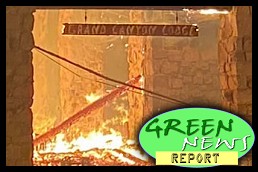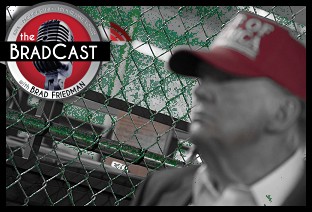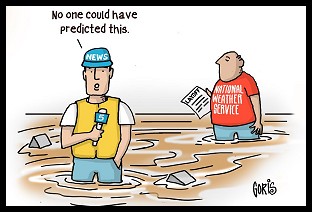Guest Blogged by Alan Breslauer
 Lou Dobbs and Kitty Pilgrim report on the frenzy to hire computer science graduate students by state officials fearing an e-voting machine disaster on election day. Dobbs also has a brief report on the Supreme Court decision upholding (for now) the new Arizona law requiring photo IDs of voters.
Lou Dobbs and Kitty Pilgrim report on the frenzy to hire computer science graduate students by state officials fearing an e-voting machine disaster on election day. Dobbs also has a brief report on the Supreme Court decision upholding (for now) the new Arizona law requiring photo IDs of voters.
The text-transcript of Friday's segment on Lou Dobbs Tonight follows in full...
Kitty Pilgrim reports.
(BEGIN VIDEOTAPE)
KITTY PILGRIM, CNN CORRESPONDENT (voice-over): On the campus of the University of California at Davis, e-mail flyers try to recruit graduate students from one of the top computer security programs in the country. The job pays $350 a day to troubleshoot electronic voting computers at local polling places in Yolo County, California on Election Day. Most poll workers are volunteers, and many are senior citizens with limited knowledge of advanced technology. So, election officials decided to go to the experts for help.
FREDDIE OAKLEY, YOLO COUNTY ELECTION OFFICIAL: Every single day something pops up, and we discover that there's a little software glitch here or a little hardware glitch there.
So I figured graduate students in computer science, they are pretty capable of fixing just about any kind of hardware or software issue that might arise during the day that would cause a delay at the polls. I'm really looking to avoid delays for my voters and to keep these machines secure from tampering.
PILGRIM: California's been on the forefront of working to avoid a disaster, with some of the most extensive rules on electronic voting security. But because of the size and complexity of the election, California is also among the top 10 states expected to have difficulties with new e-voting machines this Election Day.
In past elections and primaries, computer crashes of machines and electronic poll registration have left workers frustrated. In many cases, voters were turned away, and told to come back later. Now, many states are recruiting troubleshooters for Election Day.
On the job search Web site Monster.com, listings entitled extra money working on elections. There are several job postings for positions in counties throughout Maryland. Monster.com tells us there's been a steady increase in postings for computer technicians since September.
(END VIDEOTAPE)
PILGRIM: The election jobs come with eight hours of paid training and the advertisement on the flier in California also reads "it ain't rocket science, but it's too complicated for mere mortals." And the real mystery is why after months of electronic voting problems, all this was left until the final weeks before the election, Lou.
DOBBS: If anyone is not worried about what's going on happen in this election, I admire their confidence. Kitty, thank you very much. Kitty Pilgrim.
The U.S. Supreme Court today said the state of Arizona can require voters to present photo IDs at polling places. Now, the justices caution they were not ruling on the constitutionality of Arizona's election law. That ruling simply allows the elections to take place with the ID law intact.
The high court justices noted that the facts in this case are hotly contested, and that federal courts still have to resolve other lawsuits challenging Arizona's election law, leaving open the possibility that the will of the people might well be expressed in the state of Arizona.


 Trump IRS Agrees to Allow Churches to Endorse Political Candidates. Are All Nonprofits Next?: 'BradCast' 7/15/25
Trump IRS Agrees to Allow Churches to Endorse Political Candidates. Are All Nonprofits Next?: 'BradCast' 7/15/25 'Green News Report' 7/15/25
'Green News Report' 7/15/25
 Repub Support for Immigrants Skyrockets Amid Trump's Crackdown: 'BradCast' 7/14/25
Repub Support for Immigrants Skyrockets Amid Trump's Crackdown: 'BradCast' 7/14/25  Sunday 'Totally Predictable' Toons
Sunday 'Totally Predictable' Toons Democracy STILL Our Best Way Out of This Mess -- And Repubs Know It: 'BradCast' 7/10/25
Democracy STILL Our Best Way Out of This Mess -- And Repubs Know It: 'BradCast' 7/10/25 'Green News Report' 7/10/25
'Green News Report' 7/10/25 'Mass Shooter Subsidy'?: More Dumb, Deadly Stuff in Trump's New Law: 'BradCast' 7/9/25
'Mass Shooter Subsidy'?: More Dumb, Deadly Stuff in Trump's New Law: 'BradCast' 7/9/25  Trump's New Law Supersizes ICE, Mass Detention, Militarization: 'BradCast' 7/8/25
Trump's New Law Supersizes ICE, Mass Detention, Militarization: 'BradCast' 7/8/25  'Green News Report' 7/8/25
'Green News Report' 7/8/25 Texas Flooding Tragedy Was Both Predictable and Predicted: 'BradCast' 7/7/25
Texas Flooding Tragedy Was Both Predictable and Predicted: 'BradCast' 7/7/25 Sunday 'Big Billionaire Bonanza' Toons
Sunday 'Big Billionaire Bonanza' Toons Sunday 'Total Obliteration' Toons
Sunday 'Total Obliteration' Toons 'Green News Report' 6/26/25
'Green News Report' 6/26/25 Thank You For Your Attention to This Matter:
Thank You For Your Attention to This Matter: Mamdani Primary 'Win' Augurs New Era of Rising Progressives: 'BradCast' 6/25/25
Mamdani Primary 'Win' Augurs New Era of Rising Progressives: 'BradCast' 6/25/25 U.S. Authoritarianism Under-way (But We're Still Here to Fight It): 'BradCast' 6/24/25
U.S. Authoritarianism Under-way (But We're Still Here to Fight It): 'BradCast' 6/24/25 'Anti-War' Trump Attacks Iran on False Claims About WMD: 'BradCast' 6/23/25
'Anti-War' Trump Attacks Iran on False Claims About WMD: 'BradCast' 6/23/25 Senate Health Care Cuts 'More Extreme' Than House Version: 'BradCast' 6/19/25
Senate Health Care Cuts 'More Extreme' Than House Version: 'BradCast' 6/19/25 What 'Anti-War President'? MAGA Civil War Over Trump, Iran: 'BradCast' 6/18/25
What 'Anti-War President'? MAGA Civil War Over Trump, Iran: 'BradCast' 6/18/25 Trump's 'Remigration' is Code for 'Ethnic Cleansing': 'BradCast' 6/17/25
Trump's 'Remigration' is Code for 'Ethnic Cleansing': 'BradCast' 6/17/25 Last Weekend Today: 'BradCast' 6/16/25
Last Weekend Today: 'BradCast' 6/16/25
 VA GOP VOTER REG FRAUDSTER OFF HOOK
VA GOP VOTER REG FRAUDSTER OFF HOOK Criminal GOP Voter Registration Fraud Probe Expanding in VA
Criminal GOP Voter Registration Fraud Probe Expanding in VA DOJ PROBE SOUGHT AFTER VA ARREST
DOJ PROBE SOUGHT AFTER VA ARREST Arrest in VA: GOP Voter Reg Scandal Widens
Arrest in VA: GOP Voter Reg Scandal Widens ALL TOGETHER: ROVE, SPROUL, KOCHS, RNC
ALL TOGETHER: ROVE, SPROUL, KOCHS, RNC LATimes: RNC's 'Fired' Sproul Working for Repubs in 'as Many as 30 States'
LATimes: RNC's 'Fired' Sproul Working for Repubs in 'as Many as 30 States' 'Fired' Sproul Group 'Cloned', Still Working for Republicans in At Least 10 States
'Fired' Sproul Group 'Cloned', Still Working for Republicans in At Least 10 States FINALLY: FOX ON GOP REG FRAUD SCANDAL
FINALLY: FOX ON GOP REG FRAUD SCANDAL COLORADO FOLLOWS FLORIDA WITH GOP CRIMINAL INVESTIGATION
COLORADO FOLLOWS FLORIDA WITH GOP CRIMINAL INVESTIGATION CRIMINAL PROBE LAUNCHED INTO GOP VOTER REGISTRATION FRAUD SCANDAL IN FL
CRIMINAL PROBE LAUNCHED INTO GOP VOTER REGISTRATION FRAUD SCANDAL IN FL Brad Breaks PA Photo ID & GOP Registration Fraud Scandal News on Hartmann TV
Brad Breaks PA Photo ID & GOP Registration Fraud Scandal News on Hartmann TV  CAUGHT ON TAPE: COORDINATED NATIONWIDE GOP VOTER REG SCAM
CAUGHT ON TAPE: COORDINATED NATIONWIDE GOP VOTER REG SCAM CRIMINAL ELECTION FRAUD COMPLAINT FILED AGAINST GOP 'FRAUD' FIRM
CRIMINAL ELECTION FRAUD COMPLAINT FILED AGAINST GOP 'FRAUD' FIRM RICK SCOTT GETS ROLLED IN GOP REGISTRATION FRAUD SCANDAL
RICK SCOTT GETS ROLLED IN GOP REGISTRATION FRAUD SCANDAL VIDEO: Brad Breaks GOP Reg Fraud Scandal on Hartmann TV
VIDEO: Brad Breaks GOP Reg Fraud Scandal on Hartmann TV RNC FIRES NATIONAL VOTER REGISTRATION FIRM FOR FRAUD
RNC FIRES NATIONAL VOTER REGISTRATION FIRM FOR FRAUD EXCLUSIVE: Intvw w/ FL Official Who First Discovered GOP Reg Fraud
EXCLUSIVE: Intvw w/ FL Official Who First Discovered GOP Reg Fraud GOP REGISTRATION FRAUD FOUND IN FL
GOP REGISTRATION FRAUD FOUND IN FL


































